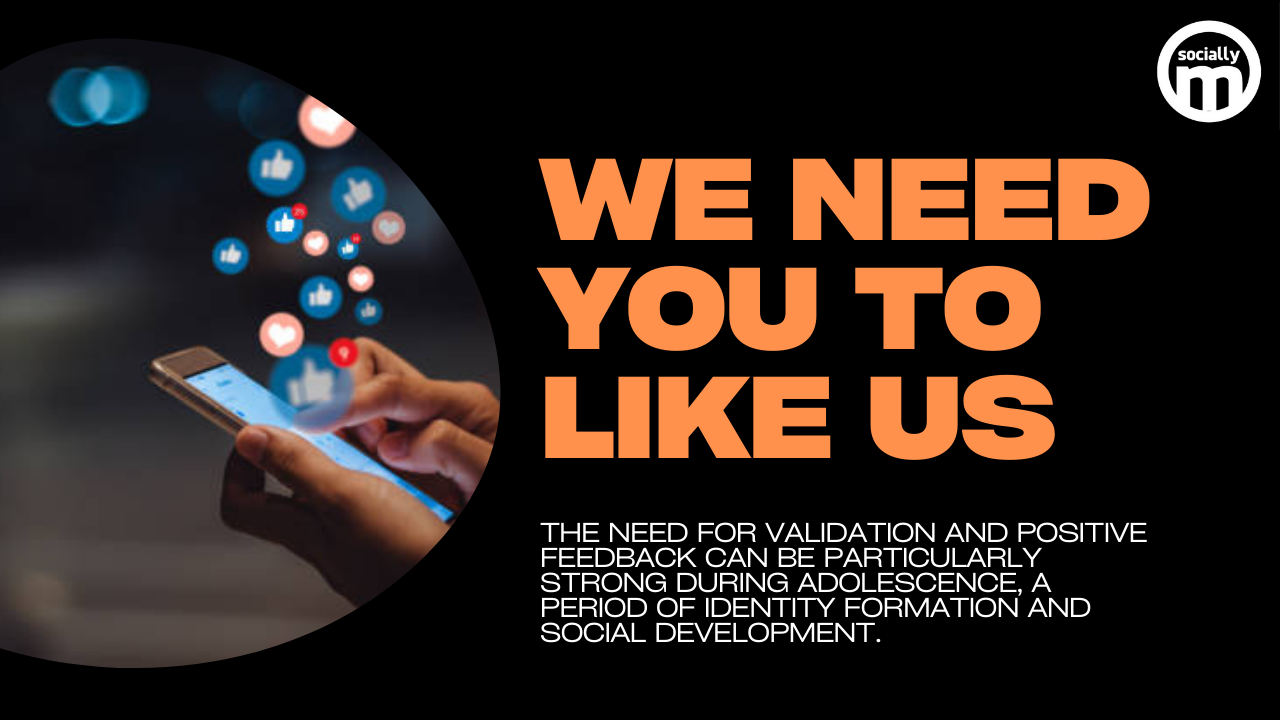|
Following our recent blogs on why children and teenagers feel almost compelled to be on the same social media platforms as their peers, this week we're exploring the links between likes and validation.
Children, like people of all ages, seek validation and likes on social media for a variety of psychological and social reasons. This need for validation and positive feedback can be particularly strong during adolescence, a period of identity formation and social development. Here are some key reasons why children may seek this kind of attention from both their peers and total strangers on social media: Social Acceptance: Adolescents are in the process of forming their identity and often seek affirmation from their peers. Receiving likes and positive comments on social media can make them feel accepted and validated by their online community. Self-Esteem: Positive feedback on social media can boost a child's self-esteem and self-worth. Each like, comment, or share can provide a sense of accomplishment and approval, reinforcing their self-image. Peer Comparison: Adolescents frequently compare themselves to their peers. The number of likes and followers they have can become a measure of social status and popularity, which can lead them to seek more validation through these metrics. Attention and Recognition: Social media allows children to showcase their talents, achievements, and interests to a potentially vast audience. Receiving likes and positive comments can give them a sense of recognition and attention they may not receive in other aspects of their lives. Emotional Connection: Social media can provide a sense of connection and belonging. Likes and positive comments can be seen as expressions of friendship and support, which can be emotionally fulfilling. Reinforcement of Behaviour: When children post content and receive positive feedback, it reinforces the behaviour of posting and sharing more content. This cycle of posting and receiving likes can become habit-forming and increase the desire for validation. Peer Pressure: Many children may feel pressured to conform to social norms and seek validation in ways that are consistent with their peer group. This can include posting certain types of content or aiming for a specific level of engagement. Dopamine Release: The act of receiving likes, comments, or shares on social media triggers the release of dopamine in the brain, which is associated with pleasure and reward. This can create a sense of instant gratification, reinforcing the desire for more likes. Validation of Identity: Children use social media to express and experiment with different aspects of their identity. Likes and positive comments can validate these self-expressions, making them feel more secure and comfortable in their identities. It's important for parents and guardians to be aware of the desire for validation on social media and to guide children in using social media responsibly. Encouraging a healthy balance between online and offline activities, discussing the potential impact of social media on self-esteem, and promoting self-worth based on internal factors rather than external validation can help children develop a more positive relationship with social media and a healthier sense of self-esteem. Are you seeing the same in your children? Are these posts useful to you? As always, I'm keen to hear what you think and to answer any questions you might have. Please leave your comments below. Yours Socially M
0 Comments
Leave a Reply. |
Archives
October 2023
|


 RSS Feed
RSS Feed
